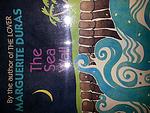Marguerite Duras
Marguerite Duras was a French novelist, playwright, screenwriter, essayist, and experimental filmmaker. Her script for the film 'Hiroshima mon amour' (1959) earned her a nomination for Best Original Screenplay at the Academy Awards. Duras's work is often associated with the nouveau roman literary movement. She is best known for her novel 'The Lover' (1984), which received the Goncourt Prize and was adapted into a successful film in 1992. Her writing is known for its explorations of memory, time, and the complexities of human emotion, often drawing on her own experiences, including her upbringing in French Indochina.
Books
This list of books are ONLY the books that have been ranked on the lists that are aggregated on this site. This is not a comprehensive list of all books by this author.
-
1. The Lover
"The Lover" is a poignant exploration of forbidden love, power dynamics, and colonialism. Set in 1930s French Indochina, it tells the story of a tumultuous and passionate affair between a 15-year-old French girl and her wealthy, older Chinese lover. The narrative delves into the complexities of their relationship, the societal norms they defy, and the inevitable heartbreak that follows. The protagonist's struggle with her family's poverty and her mother's mental instability further complicates the story, making it a compelling exploration of love, desire, and societal constraints.
-
2. The Ravishing of Lol Stein
The Ravishing of Lol Stein is a novel that explores the life of the eponymous character, who is traumatized by her fiancé's betrayal at a ball. This event leads her into a mental breakdown, after which she returns to her hometown and marries an older man. However, her life takes a turn when she becomes obsessed with a young couple, leading her to question her own sanity and reality. The book delves into themes of love, obsession, and the thin line between sanity and madness.
-
3. The Vice-Consul
This novel follows the story of three lonely, dispossessed people in Calcutta, India: a troubled former French diplomat, a young French woman haunted by her past, and a poverty-stricken Indian woman. As their lives intersect, they grapple with desire, despair, and the struggle for redemption. The narrative is a complex exploration of colonialism, privilege, and the human condition, told through the lens of these three characters' tragic and intertwined lives.
-
4. La siesta de M. Andesmas
"La siesta de M. Andesmas" is a psychological novel that revolves around the protagonist, an old man who has commissioned a house for his daughter and is waiting for the architect in the vast, desolate landscape. As he waits, he reflects on his life, his relationships, and his regrets. The narrative is characterized by its minimalistic style and its exploration of themes such as memory, time, and the human condition.
-
5. The Sea Wall
The novel explores the struggles of a widowed mother and her two children as they try to survive in the colonial Indochina of the 1930s. They are fighting against the encroaching sea that threatens their rice fields with a futile sea wall, while also grappling with the pervasive corruption and exploitation of the colonial administration. The family's plight is further complicated by the daughter's emotional entanglement with a wealthy lover, which brings temporary relief but also new tensions. The narrative delves into themes of colonialism, poverty, and the harsh realities of a woman's role in society, painting a vivid picture of the era and the landscape that shapes their lives.
-
6. Four Novels
The book is a collection of four distinct yet thematically interconnected novels that delve into the complexities of human relationships, memory, and desire. Set against the backdrop of French colonialism in Southeast Asia and post-war France, the narratives explore the lives of individuals as they navigate love, loss, and the search for identity. The author's minimalist prose and fragmented storytelling technique reflect the inner turmoil of the characters, often blurring the lines between reality and imagination. Through these intimate portraits, the collection examines the intricate dance between the personal and the political, and the enduring impact of the past on the present.
-
7. The War
This novel delves into the profound and harrowing experiences of a French woman waiting for her husband's return from a Nazi concentration camp at the end of World War II. Set against the backdrop of a war-torn Europe, the narrative explores themes of love, loss, and the resilience of the human spirit. Through a blend of diary entries, recollections, and introspective musings, the protagonist navigates the complexities of her emotions and the changing world around her. The story is a poignant reflection on the impact of war on individual lives and the enduring hope for reunion and healing amidst devastation.





